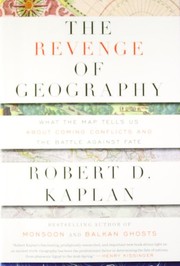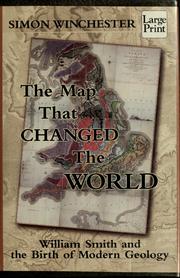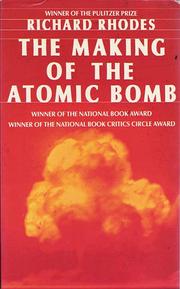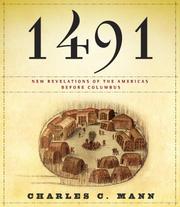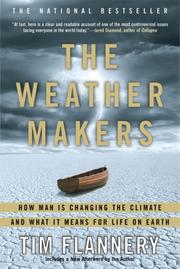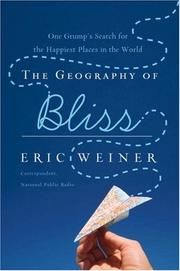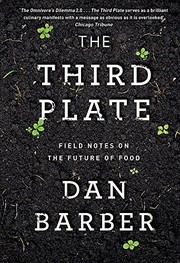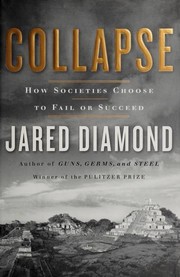Are you a geography enthusiast or just looking to expand your knowledge about the world? Look no further! We’ve curated a list of the 20 best books about geography that will take you on a fascinating journey around the globe. From in-depth explorations of different landscapes and ecosystems to gripping accounts of geographical discoveries and adventures, these books on geography offer a rich tapestry of information and insights. Whether you’re a student, a teacher, or simply a curious reader, these geography books will ignite your passion for the world around you and provide a deeper understanding of our planet’s diverse and wondrous features.
Contents
- 1 20 Best Geography Books
- 2 Prisoners of Geography: Ten Maps That Tell You Everything You Need to Know About Global Politics
- 3 Sapiens: A Brief History of Humankind
- 4 The Revenge of Geography: What the Map Tells Us About Coming Conflicts and the Battle Against Fate
- 5 The World Without Us
- 6 The Map That Changed the World: William Smith and the Birth of Modern Geology
- 7 The Making of the Atomic Bomb
- 8 The Lost City of Z: A Tale of Deadly Obsession in the Amazon
- 9 The Silk Roads: A New History of the World
- 10 1491: New Revelations of the Americas Before Columbus
- 11 The Weather Makers: How Man Is Changing the Climate and What It Means for Life on Earth
- 12 The Geography of Bliss: One Grump’s Search for the Happiest Places in the World
- 13 The Third Plate: Field Notes on the Future of Food
- 14 The Great Derangement: Climate Change and the Unthinkable
- 15 The Hidden Life of Trees: What They Feel, How They Communicate – Discoveries from a Secret World
- 16 The Sixth Extinction: An Unnatural History
- 17 The Uninhabitable Earth: Life After Warming
- 18 Prisoners of Geography: Ten Maps That Explain Everything About the World
- 19 Guns, Germs, and Steel: The Fates of Human Societies
- 20 Collapse: How Societies Choose to Fail or Succeed
- 21 The Power of Place: Geography, Destiny, and Globalization’s Rough Landscape
- 22 Final Thoughts on Best Geography Books
- 23
20 Best Geography Books
Prisoners of Geography: Ten Maps That Tell You Everything You Need to Know About Global Politics
by Tim Marshall
Prisoners of Geography: Ten Maps That Tell You Everything You Need to Know About Global Politics by Tim Marshall is a compelling book about the impact of physical and human geography on the political and social dynamics of the world. Through the use of ten maps, Marshall delves into how geographical features such as mountains, rivers, and borders have shaped the history and current state of international relations.
This insightful geography book explores how natural resources, climate, and terrain influence the decisions and behaviors of nations, and how these factors contribute to conflicts, alliances, and power struggles on a global scale. Marshall’s engaging writing style and in-depth analysis provide readers with a fresh perspective on the complexities of global politics and the role that geography plays in shaping our world.
Whether you are a geography enthusiast or simply curious about the impact of geographical factors on international affairs, Prisoners of Geography offers a fascinating and thought-provoking exploration of the interconnectedness of physical and human geography with global politics.
Sapiens: A Brief History of Humankind
by Yuval Noah Harari
Sapiens: A Brief History of Humankind by Yuval Noah Harari is a captivating book about geography that takes readers on an exhilarating journey through the history of the human species. Harari skillfully weaves together insights from history, anthropology, and biology to provide a thought-provoking account of how Homo sapiens became the dominant species on the planet.
From the early foraging societies to the rise of empires and the technological advancements of the modern age, Harari explores the key events and developments that have shaped human history. He delves into the impact of agriculture, the formation of complex societies, and the spread of ideologies, offering a fresh perspective on the forces that have driven the course of human civilization.
With a compelling narrative and a wealth of fascinating information, Sapiens is a must-read for anyone interested in the geography book of human societies. Harari’s engaging writing style and ability to distill complex ideas make this book an enlightening and enjoyable exploration of our shared past.
The Revenge of Geography: What the Map Tells Us About Coming Conflicts and the Battle Against Fate
by Robert D. Kaplan
The Revenge of Geography: What the Map Tells Us About Coming Conflicts and the Battle Against Fate by Robert D. Kaplan is a captivating exploration of the profound influence of physical and human geography on the course of history and the shaping of global politics. Kaplan weaves together compelling narratives and astute analysis to illustrate how geographical factors such as topography, climate, and natural resources have shaped the destinies of nations and civilizations.
Through insightful case studies and geopolitical observations, Kaplan argues that the enduring significance of geography in shaping international relations and conflicts cannot be overlooked in our modern world. This geography book provides a thought-provoking perspective on the intricate interplay between physical landscapes and human societies, offering a compelling framework for understanding the complexities of global politics and the potential future battlegrounds.
Whether you’re a history buff, a geopolitics enthusiast, or simply curious about the forces that drive world events, The Revenge of Geography is a must-read for anyone seeking a deeper understanding of the forces at play in our interconnected world.
The World Without Us
by Alan Weisman
The World Without Us by Alan Weisman is a captivating book on geography that explores what would happen to the planet if humans suddenly vanished. With vivid detail and meticulous research, Weisman paints a compelling picture of how nature would reclaim our cities, infrastructure, and the entire earth if we were no longer present. From the resurgence of wildlife in urban areas to the slow decay of our buildings and monuments, this geography book offers a thought-provoking glimpse into a world where human influence is erased. Weisman’s writing is both informative and imaginative, making this book a fascinating journey through time and space. Whether you’re an environmental enthusiast or simply curious about the resilience of the natural world, The World Without Us is a must-read for anyone interested in the intricate relationship between humans and the planet.
The Map That Changed the World: William Smith and the Birth of Modern Geology
by Simon Winchester
The Map That Changed the World: William Smith and the Birth of Modern Geology by Simon Winchester is a captivating book about geography that tells the fascinating story of William Smith, a self-taught geologist who created the first geological map of England and Wales. The book delves into Smith’s life, from his humble beginnings as an orphan to his groundbreaking work in the field of geology.
Winchester’s narrative skillfully weaves together Smith’s personal struggles and triumphs with the scientific advancements he made, providing readers with a compelling portrait of a man whose work revolutionized our understanding of the Earth’s history. Through vivid storytelling and meticulous research, Winchester brings to life the world of geology in the late 18th and early 19th centuries, shedding light on the challenges and triumphs of one man’s quest to map the geological features of a nation.
With its blend of history, science, and biography, The Map That Changed the World is a must-read for anyone interested in the history of geology and the remarkable individuals who shaped our understanding of the Earth’s landscape.
The Making of the Atomic Bomb
by Richard Rhodes
The Making of the Atomic Bomb by Richard Rhodes is a captivating and in-depth exploration of the scientific, political, and human aspects of the development of the atomic bomb. This Pulitzer Prize-winning book delves into the history of nuclear physics, the race to build the bomb during World War II, and the moral implications of its use. Rhodes skillfully weaves together the stories of the brilliant scientists, government officials, and military leaders who played pivotal roles in the creation of this world-changing weapon, offering a comprehensive understanding of the complex geopolitical landscape of the time. This book about geography is a meticulously researched and gripping narrative that brings to life the challenges, breakthroughs, and ethical dilemmas faced by the individuals involved in the atomic bomb’s creation. The Making of the Atomic Bomb is an essential read for anyone interested in the intersection of science, politics, and history.
The Lost City of Z: A Tale of Deadly Obsession in the Amazon
by David Grann
The Lost City of Z: A Tale of Deadly Obsession in the Amazon by David Grann is a captivating geography book that delves into the real-life adventure and mystery of explorer Percy Fawcett’s quest to find a hidden civilization in the Amazon rainforest. Grann follows Fawcett’s footsteps, unraveling the enigma surrounding his disappearance and the tantalizing clues that hint at the existence of a lost city. The narrative weaves together history, adventure, and the dangers of the uncharted Amazon, creating a gripping story of obsession and exploration.
Grann’s meticulous research and vivid storytelling bring the Amazon’s treacherous terrain to life, immersing readers in the allure and perils of one of the most remote and mysterious regions on the planet. The Lost City of Z is a spellbinding journey through the heart of the Amazon, blending history, adventure, and the enduring allure of discovery.
The Silk Roads: A New History of the World
by Peter Frankopan
The Silk Roads: A New History of the World by Peter Frankopan is a captivating book about geography that takes readers on a journey along the ancient trade routes that connected the East and West. Frankopan’s narrative weaves together the stories of people, cultures, and civilizations that were influenced by the book on geography of the Silk Roads. From the rise and fall of empires to the exchange of ideas, religions, and goods, the author presents a fresh perspective on world history that challenges the traditional Eurocentric view. Through vivid storytelling and meticulous research, Frankopan brings to life the vibrant tapestry of societies that flourished along these interconnected routes, offering a rich and nuanced understanding of the forces that shaped the world as we know it. The Silk Roads is a thought-provoking and enlightening geography book that will leave readers with a deeper appreciation for the complex and dynamic interactions that have shaped human civilization.
1491: New Revelations of the Americas Before Columbus
by Charles C. Mann
1491: New Revelations of the Americas Before Columbus by Charles C. Mann is a captivating book on geography that challenges our traditional understanding of the Americas before the arrival of Christopher Columbus. Mann delves into the diverse cultures, advanced civilizations, and complex societies that existed in the Americas prior to European contact. Through meticulous research and engaging storytelling, Mann paints a vivid picture of the pre-Columbian Americas, highlighting the immense diversity and sophistication of indigenous societies.
This thought-provoking geography book explores the impact of disease, agriculture, and trade on the development of civilizations in the Americas, shedding light on the interconnectedness of different regions and peoples. Mann’s narrative is both informative and eye-opening, offering readers a new perspective on the history and geography of the Americas. With its compelling insights and compelling storytelling, 1491 is a must-read for anyone interested in understanding the rich and complex tapestry of pre-Columbian America.
The Weather Makers: How Man Is Changing the Climate and What It Means for Life on Earth
by Tim Flannery
The Weather Makers: How Man Is Changing the Climate and What It Means for Life on Earth by Tim Flannery is a groundbreaking book on geography that explores the impact of human activities on the Earth’s climate. Flannery, a renowned scientist and environmentalist, presents a compelling argument for the urgent need to address climate change and its potential consequences for all life on our planet. Through a combination of scientific research, historical analysis, and personal anecdotes, Flannery paints a vivid picture of the ways in which human actions are altering the Earth’s climate and the potential ramifications for ecosystems, weather patterns, and human societies. This geography book provides a comprehensive overview of the science behind climate change, as well as a thought-provoking examination of what the future may hold if we fail to take action. The Weather Makers is a must-read for anyone interested in understanding the profound impact of human activity on the environment and the urgent need for global solutions.
The Geography of Bliss: One Grump’s Search for the Happiest Places in the World
by Eric Weiner
The Geography of Bliss: One Grump’s Search for the Happiest Places in the World by Eric Weiner is a fascinating book on geography that takes readers on a journey to some of the happiest places on Earth. Weiner, a self-proclaimed grump, sets out to explore the concept of happiness and uncover what makes people in different parts of the world happy.
Through his witty and insightful observations, Weiner provides a unique perspective on the geography book that goes beyond traditional maps and landmarks. He delves into the cultural, societal, and personal factors that contribute to the overall well-being of a society.
Readers will travel with Weiner to countries such as Iceland, Bhutan, and Switzerland, as he immerses himself in the local customs and traditions to uncover the secrets of happiness. Along the way, he shares humorous anecdotes and thought-provoking insights that challenge conventional notions of what it means to be happy.
The Geography of Bliss offers a refreshing and thought-provoking take on the book about geography, and is a must-read for anyone interested in exploring the connections between place and happiness.
The Third Plate: Field Notes on the Future of Food
by Dan Barber
The Third Plate: Field Notes on the Future of Food by Dan Barber is an eye-opening exploration of the intersection between agriculture, ecology, and cuisine. In this thought-provoking book on geography, Barber takes readers on a journey through the world of sustainable farming and the impact of our food choices on the environment. Through his experiences traveling and working with farmers, fishermen, and chefs, Barber challenges the traditional notion of a “protein-centric” plate and advocates for a more holistic and environmentally conscious approach to eating. With vivid storytelling and insightful analysis, the author paints a compelling picture of the interconnectedness of our food system and the geography book of flavor. Whether you’re a food enthusiast, environmentalist, or simply curious about the future of food, The Third Plate offers a fresh perspective on the way we eat and the potential for a more sustainable and delicious culinary landscape.
The Great Derangement: Climate Change and the Unthinkable
by Amitav Ghosh
The Great Derangement: Climate Change and the Unthinkable by Amitav Ghosh is a thought-provoking book on geography that challenges the way we think about climate change. Ghosh argues that the modern world has failed to come to terms with the reality of climate change, and that this failure is partly due to a cultural “derangement” that prevents us from fully comprehending the scale and urgency of the crisis.
Ghosh draws on a wide range of sources, from literature and history to science and politics, to explore how our current cultural and political frameworks have contributed to our inability to confront the challenges of climate change. He also examines the role of narratives and storytelling in shaping our understanding of the natural world, and suggests that a shift in our cultural and literary imagination is necessary in order to address the unprecedented challenges of climate change.
This geography book is a timely and urgent call to action, urging us to confront the unthinkable realities of climate change and to rethink our relationship to the natural world.
The Hidden Life of Trees: What They Feel, How They Communicate – Discoveries from a Secret World
by Peter Wohlleben
The Hidden Life of Trees: What They Feel, How They Communicate – Discoveries from a Secret World by Peter Wohlleben is a captivating book about geography that delves into the fascinating world of trees. Wohlleben, a forester, shares his deep understanding of trees and the intricate ways in which they communicate, support each other, and even feel. Through his engaging storytelling, he reveals the hidden complexities of the forest and the remarkable abilities of trees to connect, care for each other, and adapt to their environment.
Readers will be enthralled by Wohlleben’s insights into the interconnectedness of trees and the natural world, as well as his revelations about the ways in which trees respond to their surroundings and share resources. This insightful geography book sheds light on the hidden lives of trees and challenges us to see these ancient beings in a new light. Whether you’re a nature enthusiast or simply curious about the wonders of the natural world, The Hidden Life of Trees is sure to leave a lasting impression.
The Sixth Extinction: An Unnatural History
by Elizabeth Kolbert
The Sixth Extinction: An Unnatural History by Elizabeth Kolbert is a captivating exploration of the current mass extinction event facing our planet. Kolbert, a Pulitzer Prize-winning author and journalist, takes readers on a journey through time and space to understand the impact of human activity on the natural world. Through vivid storytelling and thorough research, she examines the causes and consequences of this modern-day crisis, shedding light on the interconnectedness of species and the fragile balance of the Earth’s ecosystems.
This book on geography delves into the science of extinction, from the disappearance of ancient creatures to the alarming rate at which species are vanishing today. Kolbert’s compelling narrative also highlights the efforts of scientists and conservationists who are working tirelessly to preserve biodiversity and mitigate the effects of human-induced environmental changes. The Sixth Extinction is a thought-provoking and urgent geography book that challenges readers to confront the reality of our impact on the planet and consider the implications for the future of life on Earth.
The Uninhabitable Earth: Life After Warming
by David Wallace-Wells
The Uninhabitable Earth: Life After Warming by David Wallace-Wells is a gripping and sobering exploration of the future of our planet in the face of climate change. This compelling geography book paints a vivid and alarming picture of the potential consequences of unchecked global warming. Wallace-Wells delves into the various ways in which rising temperatures will impact all aspects of life on Earth, from extreme weather events to food shortages, mass migration, and the collapse of ecosystems.
With meticulous research and compelling storytelling, the author presents a stark and urgent warning about the catastrophic effects of climate change, offering a chilling glimpse into a future that could be closer than we think. The Uninhabitable Earth is a must-read for anyone concerned about the fate of our planet and the impact of environmental changes on human civilization. This geography book is a powerful call to action, urging readers to confront the reality of climate change and take meaningful steps to mitigate its devastating effects.
Prisoners of Geography: Ten Maps That Explain Everything About the World
by Tim Marshall
Prisoners of Geography: Ten Maps That Explain Everything About the World by Tim Marshall is a captivating book on geography that delves into the powerful influence of geography on global politics and international relations. Through ten meticulously crafted maps, Marshall skillfully demonstrates how physical geography shapes the destinies of nations and dictates their strategic decisions.
From the icy expanses of Russia to the dense jungles of South America, each chapter of this geography book paints a vivid picture of how geographical features such as mountains, rivers, and coastlines have played a pivotal role in shaping the world’s political landscape. Marshall’s engaging writing style and insightful analysis make this book about geography a must-read for anyone interested in understanding the complex interplay between geography and global power dynamics.
Whether you’re a student of geopolitics or simply intrigued by the forces that shape our world, Prisoners of Geography offers a compelling and enlightening exploration of the profound impact of geography on our planet’s political stage.
Guns, Germs, and Steel: The Fates of Human Societies
by Jared Diamond
Guns, Germs, and Steel: The Fates of Human Societies by Jared Diamond is a groundbreaking book on geography that delves into the factors that have shaped human history. Diamond explores how the geographical distribution of resources, such as plants, animals, and minerals, has influenced the development of different societies around the world. He argues that certain regions were more conducive to the rise of complex societies due to the availability of domesticable plants and animals, which led to the development of agriculture and the accumulation of wealth.
This book about geography also examines the impact of germs and technology on human societies, as well as the role of conquest and colonialism in shaping the modern world. Diamond’s compelling analysis challenges traditional notions of human progress and offers a thought-provoking perspective on the interconnectedness of human societies and the environment. Whether you’re a history buff, a social scientist, or simply curious about the forces that have shaped the world we live in, this geography book is a must-read.
Collapse: How Societies Choose to Fail or Succeed
by Jared Diamond
Collapse: How Societies Choose to Fail or Succeed is a fascinating book about geography that explores the rise and fall of ancient and modern societies. Jared Diamond, a renowned scientist and author, delves into the environmental and societal factors that contribute to the collapse of civilizations, from the ancient Maya to the modern-day Easter Island.
Through detailed case studies and thorough research, Diamond examines how issues such as deforestation, climate change, and political decisions can lead to the downfall of once-thriving societies. He also offers insights into how some cultures have managed to avoid collapse by making sustainable choices and adapting to environmental challenges.
This thought-provoking geography book not only provides a historical perspective on the impact of human activity on the environment, but also offers valuable lessons for present and future societies. Collapse is a compelling and eye-opening read that encourages readers to consider the long-term consequences of their actions and the importance of sustainable practices.
The Power of Place: Geography, Destiny, and Globalization’s Rough Landscape
by Harm de Blij
The Power of Place: Geography, Destiny, and Globalization’s Rough Landscape by Harm de Blij is a captivating book on geography that explores the profound impact of location on the course of human events. De Blij delves into the intricate interplay between geography, history, and human behavior, demonstrating how the physical characteristics of a place can shape the destiny of its inhabitants.
This engaging geography book takes readers on a journey across the globe, uncovering the ways in which natural features such as mountains, rivers, and climate have influenced the development of civilizations and the patterns of human migration. De Blij also examines the modern phenomenon of globalization and its effects on the world’s geography, shedding light on the complex challenges and opportunities that arise from an increasingly interconnected planet.
With compelling storytelling and rigorous analysis, The Power of Place offers a thought-provoking exploration of the intricate relationship between geography and human history, making it a must-read for anyone interested in understanding the forces that shape our world.
Final Thoughts on Best Geography Books
Exploring the world through the pages of books about Geography is an enriching experience that offers a deeper understanding of our planet’s diverse landscapes, cultures, and environments. Whether you’re a geography enthusiast or simply curious about the world around you, these 20 best books about geography provide a captivating journey across continents, oceans, and beyond. From stunning visual atlases to thought-provoking narratives, these books offer a comprehensive exploration of our planet’s geographical wonders. Dive into these captivating reads and embark on a fascinating exploration of the world we live in.
Which book about Geography is best?
The best book on Geography can vary with personal preference, but three widely recommended titles are:
- Prisoners of Geography: Ten Maps That Tell You Everything You Need to Know About Global Politics by Tim Marshall,
- Sapiens: A Brief History of Humankind by Yuval Noah Harari,
- The Revenge of Geography: What the Map Tells Us About Coming Conflicts and the Battle Against Fate by Robert D. Kaplan.
Each offers valuable insights and could be a great starting point.
What are the best books to learn about Geography?
For those looking to learn about Geography, there is a wealth of literature that can provide a comprehensive understanding of the subject. Some of the most highly recommended books include:
- Prisoners of Geography: Ten Maps That Tell You Everything You Need to Know About Global Politics by Tim Marshall,
- Sapiens: A Brief History of Humankind by Yuval Noah Harari,
- The Revenge of Geography: What the Map Tells Us About Coming Conflicts and the Battle Against Fate by Robert D. Kaplan,
- The World Without Us by Alan Weisman,
- The Map That Changed the World: William Smith and the Birth of Modern Geology by Simon Winchester,
- The Making of the Atomic Bomb by Richard Rhodes,
- The Lost City of Z: A Tale of Deadly Obsession in the Amazon by David Grann,
- The Silk Roads: A New History of the World by Peter Frankopan,
- 1491: New Revelations of the Americas Before Columbus by Charles C. Mann,
- The Weather Makers: How Man Is Changing the Climate and What It Means for Life on Earth by Tim Flannery
These books offer a range of perspectives on Geography, covering various aspects and approaches to the subject.
What are the best books about Geography?
The best books about Geography are:
- Prisoners of Geography: Ten Maps That Tell You Everything You Need to Know About Global Politics by Tim Marshall,
- Sapiens: A Brief History of Humankind by Yuval Noah Harari,
- The Geography of Bliss: One Grump’s Search for the Happiest Places in the World by Eric Weiner,
- The Third Plate: Field Notes on the Future of Food by Dan Barber,
- The Silk Roads: A New History of the World by Peter Frankopan,
- The Making of the Atomic Bomb by Richard Rhodes.
Each offers unique insights into the subject. While these books about Geography are highly regarded, it’s important to note that any list of ‘best’ books is subjective and reflects a range of opinions.
What are the best Geography books of all time?
Choosing the best Geography books of all time can vary depending on who you ask, but five titles that are often celebrated include
- Prisoners of Geography: Ten Maps That Tell You Everything You Need to Know About Global Politics by Tim Marshall,
- Sapiens: A Brief History of Humankind by Yuval Noah Harari,
- The Map That Changed the World: William Smith and the Birth of Modern Geology by Simon Winchester,
- The Silk Roads: A New History of the World by Peter Frankopan,
- and The Geography of Bliss: One Grump’s Search for the Happiest Places in the World by Eric Weiner.
Each of these books has made a significant impact in the field of Geography and continues to be influential today.



